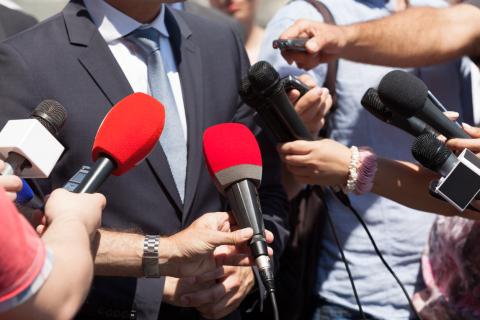The Republican and Democratic Parties are in panic mode. They see poll after poll show how unfavorable their candidates are and how appealing a third option in the presidential race is going into the 2024 election cycle, and they are freaking out.
For the first time since 1992 the presence of third party and independent candidates has a chance to completely change the conversation around presidential elections. Unfortunately, it will not be the conversation one would expect in a democratic process.
Unfavorable views of the major parties and their candidates are at all-time highs, while the percentage of voters who say they will be voting for an independent or third-party option is higher than normal. Robert F. Kennedy Jr, for example, is polling high enough in national polls at the moment to qualify for the presidential debate stage.
That is, if pollsters continue to include his name and the debate commission honors its own rules. Both things remain to be seen.
Voters should expect to hear names like Kennedy and Cornel West more in the coming months. The likelihood of either candidate winning is incredibly slim, but the response to their campaigns should serve as a wakeup call to the major parties.
The operative word being "should."
This "should" be a moment of reflection for the major parties and their campaigns. They "should" consider why voters find them so unfavorable. They "should" consider how they can broaden their appeal and offer greater accountability.
They "should" try to win over voters who are seriously looking at alternative choices because this is how competition in elections "should" work. But this is not how the two-party duopoly operates.
The parties do not view voters as people they need to convince to vote for them. They view voters as people to blame for not voting for them.
NBC News recently ran an article titled, "2024 wild card: A banner year for third-party candidates." The article describes the lengths the parties and their advocates and operatives are going to keep voters divided between Team Red and Team Blue.
The article states:
"MoveOn.org is working to keep progressive voters in the [Democratic] fold; 'never Trump' groups like the Lincoln Project are trying to do the same for moderates; a new bipartisan group founded by former House Democratic leader Richard Gephardt has been engaging Washington graybeards to write op-eds and talk to donors; Reproductive Freedom for All produced an ad claiming No Labels wants a national abortion ban; End Citizens United has been playing up potential campaign finance issues; and the opposition research super PAC American Bridge has retained Democratic lawyer Marc Elias to look for opportunities to bring legal challenges to third-party candidates."
The last sentence is something voters should pay particularly close attention to because the major parties have a track record of challenging an independent or third-party candidate's place on the ballot based on no genuine grievance but to bury the candidate in legal costs until they give up.
What is described above only gets into the Democratic efforts. Republicans and Republican allies in the media are doing the same thing. The NBC News article states:
"Both parties have made efforts to keep their voters in the fold, with Republicans boosting Kennedy during his Democratic primary run against Biden, then reversing course when he declared as an independent and polls showed Republicans liked his conspiratorial brand of populism.
Donald Trump Jr. has called Kennedy “a Democrat plant,” the Republican National Committee has repeatedly blasted him as “a Democrat in Independent’s clothing,” and right-wing media personalities have warned their followers not to fall for a candidate they had praised months earlier."
The parties understand that voters are not happy with them. One former GOP operative was even quoted saying, " I understand the frustration with the two-party system," and then added a "but" to explain why it's still on the voters to play the duopoly's game.
Party operatives have no qualms telling voters to their faces that they know people are frustrated, unhappy, and feel unrepresented -- and they don't care. If voters cast a ballot for an independent or third-party candidate it is really a vote for "the worst candidate," and how dare they exercise choice.
Voters should expect the rhetoric to get worse in the new year. The parties view competition as a threat to their interests, and they spent decades manufacturing electoral and political systems to put their interests above all else -- no matter how dissatisfied voters are.
And while this may not be the wakeup call the parties need to do better by the American people (because that simply is not in the cards), it will be a wakeup call to even more voters on how the current system fails them and the need for broad, systemic reform.
